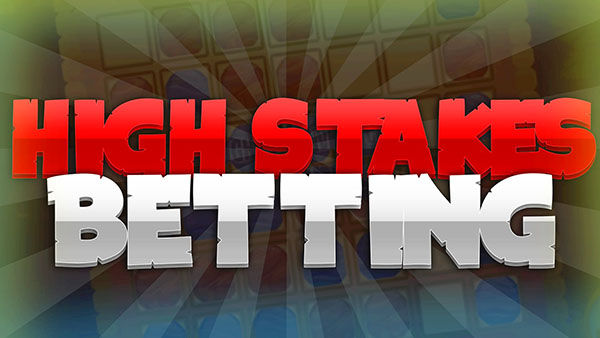After Senate Majority Leader Mitch McConnell used Senate rule # 19 to silence Senator Elizabeth Warren, Senator Marco Rubio* made an important speech that seems to have gone unnoticed. In it he said, “What’s at stake here tonight…is…the ability of the most important nation on earth to debate in a productive and respectful way the pressing issues before us.”
He also stated, “We are reaching a point…where we are not going to be able to solve the simplest of issues because everyone is putting themselves in a corner where everyone hates everybody.”
Exactly.
Two Pew Research surveys support Rubio’s claims. A recent one found that 86% of the public perceive the country as more politically divided today than in the past and have scant optimism that divisions will lessen in the future. A 2014 Pew survey showed a significant increase in the number of residents who believe that the policies of the opposite party are so misguided that they “threaten the nation’s well-being.” (“Threaten the nation’s well-being” probably morphs into “threaten my well-being” in interactions.)
Not being able to debate in productive and respectful ways, political divisiveness, and perceived threats to the nation’s well being. Wow. To this sobering list I add bad process. Outmoded political processes push elected officials to debate solutions before defining and agreeing on the problem or understand what is causing it. (Isn’t this what most proposed legislation or policies are? Solutions to problems no one understands or agrees on?)
In addition, these “solution wars” are too often unmoored from facts and from the perspectives of people who are being affected by the problem or the solution. These same dynamics also affect our interactions at work and in our communities.
How we interact is an enormous roadblock to our effectively tackling the pressing issues before us. We might not be able to change how folks in Washington, DC talk (or don’t) with one another, but we can change how we interact. That is what “How We Talk Matters” is about.
What are the one or two things you can you do in your next meeting to at least avoid mirroring the conversational culture being exhibited in Washington and at most shift the local conversational culture towards respectfulness, productivity, and understanding? Here are a few things:
- Check your preconceptions about “those people” at the door;
- Prepare yourself to listen and ask questions to deepen your understanding of the points of view of others and what they might need;
- Make conscious and constructive choices about your words and the tone in which you say them;
- Advocate for good process: “Let’s define the problem and understand what’s causing it before we consider solutions.”
Please let me know how it goes.
*Although I usually disagree with most of what Rubio says, I am practicing what I preach: avoiding ad hominem arguments (attacking the messenger) and valuing the message when it rings true regardless of who says it.
Mary’s book “Talk Matters! Saving the World One Word at a Time” is now available. Click here to purchase it.


Mindfulness and intent are prerequisites to productive conversation and effective facilitation of process. Dr. John Beebe of the Jungian Institute in S.F. has proposed a model that completes Jung’s identification of Archetypes that most closely associate with conscious Psychological Type preferences. Associated with the MBTI concept of Dominant, Auxiliary, Tertiary and inferior Function-Attitude preferences, Jung proposed the archetypes Hero, Good Parent, Eternal Child, and Anima/Animus. Beebe’s expanded model offers the corresponding shadow side unconscious archetypes of Oppositional Personality (anti-Hero), Witch/Senex (bad parent), Trickster, and Demon/Daimon. These unconscious archetypes are essential as they carry the energy of ego defenses (opposition, withering criticism, trickery and deception, and undermining). They allow us to defend ourselves when threatened and also to recognize when when those unconscious archetypes are driving the actions of others.
One way of explaining pathological Narcissism/Sociopathy is what Jung called, “possession by the shadow” – where a personality is exhibiting preference for the shadow archetypes over the conscious archetypes. This happens when there is a weak ego that must be constantly defended.
Thomas Friedman (“Thank You for Being Late”) suggests that the current rate of change is accelerating rapidly and has now outpaced general human adaptability – leaving us all feeling generally out of control and at risk – and I would add, triggering our unconscious defensive archetypes. My sense is that we are up against a great deal of unconscious archetypal defense reaction characterized by denial, grandiosity, delusions, objectifying and demonizing of “the other”, deception and misdirection, etc. This is now happening on a collective national scale and is on display on the cable networks every day as people talk past each other with no intent to solve anything. Many people confuse unconscious reactivity with “strength” and open display of shadowy behavior we often try to hide, as “honesty”. That confusion results in a false and dangerous narrative.
So, a key question for our times is how can we address reactions that are largely unconscious and therefore significantly impervious to fact and logic, or even to feeling and values? I think Van Jones (CNN) is someone in the media trying to encourage some listening and dialogue. Bill Moyers has always been there, but his pace is slightly a ways below twitter speed.
Thanks, Mary and Roger, for your important contributions. Mindful process is needed now more than ever.